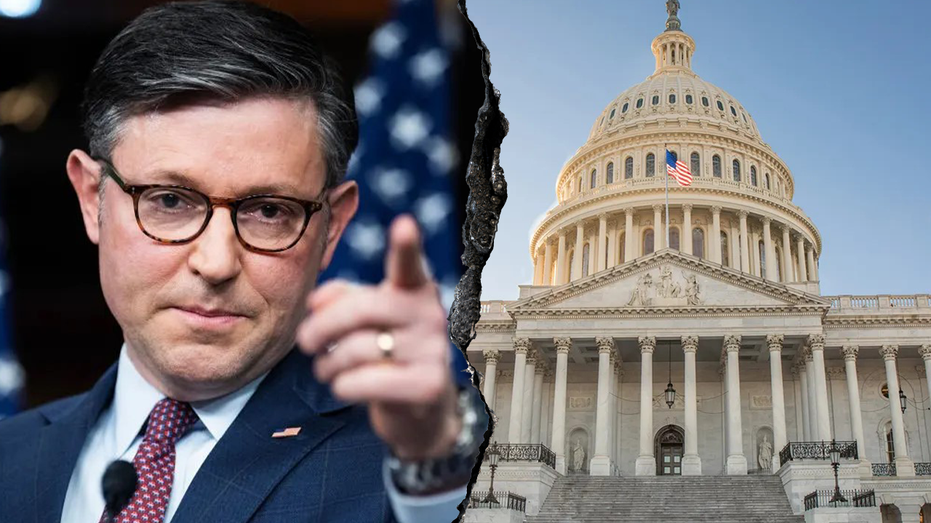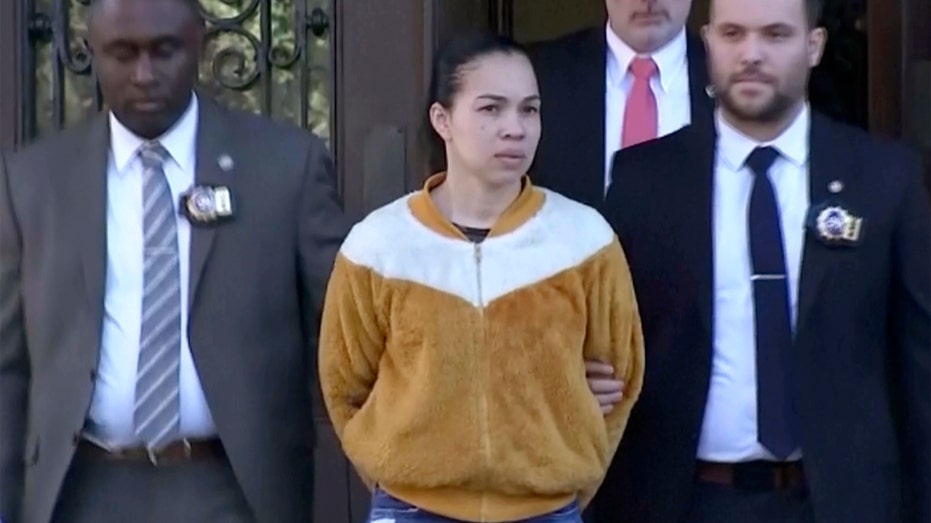The Hitchhiker’s Guide to failing to elect a House speaker quickly
On the first day of the new Congress, representatives will vote for the speaker of the House as Mike Johnson fights to keep the job.

The problem has been percolating for a while.
It’s been subterranean. Lurking underneath the surface. Not necessarily perceptible.
Except to those who follow Congress closely.
But the issue has gurgled to the top since the House stumbled badly trying to avert a government shutdown last week.
To wit:
Congress spasmed between a staggering, 1,500-page spending bill. Then defeated a narrow, 116-page bill – which President-elect Trump endorsed. Things got worse when the House only commandeered a scant 174 yeas for the Trump-supported bill and 38 Republicans voted nay. Circumstances grew even more dire when the House actually voted to avert a holiday government shutdown – but passed the bill with more Democrats (196) than Republicans (170). Thirty-four GOPers voted nay.
It was long likely that House Speaker Mike Johnson, R-La., might face a problem winning the speaker’s gavel immediately when the new Congress convenes at noon ET on Jan. 3. Congressional experts knew that Johnson could be in trouble once the contours of the reed-thin House majority came into focus weeks after the November election. This could blossom into a full-blown crisis for Johnson – and House Republicans –when the speaker’s vote commences a little after 1 p.m. ET next Friday.
Johnson emerges bruised from last week’s government funding donnybrook. Anywhere from four to 10 Republicans could oppose Johnson in the speaker’s race.
Here’s the math:
The House clocks in at 434 members with one vacancy. That’s thanks to former Rep. Matt Gaetz, R-Fla. He resigned his position for this Congress a few weeks ago. Even though Gaetz won re-election in November, his resignation letter – read on the floor of the House – signaled he did not plan to serve in the new Congress, which begins in January.
This is the breakdown when the Congress starts: 219 Republicans to 215 Democrats.
Trump’s pick for national security adviser, Rep. Michael Waltz, R-Fla., remains in the House for now. So does Rep. Elise Stefanik, R-N.Y. Trump tapped her to serve as U.S. ambassador to the United Nations. That’s pending Senate confirmation – perhaps in late January or early February. Once Waltz and Stefanik resign, the GOP majority dwindles to 217-214.
But the speaker’s election on Jan. 3 poses a special challenge. Here’s the bar for Johnson – or anyone else: The speaker of the House must win an outright majority of all members casting ballots for someone by name. In other words, the person with the most votes does not win. That’s what happened repeatedly to former House Speaker Kevin McCarthy, R-Calif., when he routinely outpolled House Minority Leader Hakeem Jeffries, D-N.Y., for speaker to begin this Congress in January 2023. But it took days for McCarthy to cross the proper threshold.
More on that in a moment.
So let’s crunch the math for Mike Johnson. If there are 219 Republicans and four voted for someone besides him – and all Democrats cast ballots for Jeffries, the tally is 215-214. But there’s no speaker. No one attained an outright majority of all members casting ballots for someone by name. The magic number is 218 if all 434 members vote.
By rule, this paralyzes the House. The House absolutely, unequivocally, cannot do anything until it elects a speaker. Period.
The House can’t swear in members. Technically, they’re still representatives-elect. Only after the House chooses its speaker does he or she in turn swear in the membership.
The House certainly can’t pass legislation. It can’t form committees. It’s frozen in a parliamentary paralysis until it elects a speaker.
Now, I hope you’re sitting down for the next part.
This also means that the House cannot certify the results of the Electoral College, making Trump the 47th president of the United States on Jan. 6.
The failure to elect a speaker compels the House to vote over and over…
And over... and... over…
Until it finally taps someone.
McCarthy’s election incinerated 15 ballots over five days two years ago.
The House settled into a congressional cryogenic freeze for three weeks after members ousted McCarthy in October 2023. It burned through two speaker candidates off the floor – House Majority Leader Steve Scalise, R-La., and House Majority Whip Tom Emmer, R-Minn. – and one candidate on the floor: Rep. Jim Jordan, R-Ohio.
So you see the problem.
Consider for a moment that prior to last year, the House never went to a second ballot to select a speaker since Speaker Frederick Gillett, R-Mass., in 1923.
It took 63 ballots before the House finally settled on Speaker Howell Cobb, D-Ga., in 1849.
But that’s nothing. The longest speaker’s election consumed two months before the House elected Speaker Nathaniel Banks, R-Mass., in 1856 – on the 133rd ballot.
So anything which elongates this into a collision with Jan. 6 - the statutory day to certify the election results and now one of the most ignominious days in American history – is dangerous.
JOHNSON ALLIES URGE TRUMP TO INTERVENE AS MESSY SPEAKER BATTLE THREATENS TO DELAY 2024 CERTIFICATION
To be clear: there is no dispute that Trump won the election. There is no anticipation of a repeat of a riot at the Capitol like four years ago. But a failure to certify the Electoral College on the day it’s supposed to be completed – especially after the 2021 experience – is playing with fire. Such a scenario would again reveal another, never-before-considered vulnerability in the fragile American political system.
On Jan. 6, the House and Senate are supposed to meet in a joint session of Congress to tabulate and certify the electoral votes. Any disputes over a state’s slate of electoral votes compels the House and Senate to then debate and vote separately on those results. The election is not final until the joint session concludes and the vice president – in this case Kamala Harris – in her capacity as president of the Senate, announces a victor.
Congress is not required to certify the Electoral College on the calendar day of Jan. 6. There is actually some leeway to wrap things up. In 2021, the Electoral College wasn’t certified until around 3:52 a.m. on Jan. 7. It only becomes a major problem if this drags on through noon on Jan. 20. That’s when the Constitution prescribes that the president-elect take the oath of office.
What happens if the Electoral College isn’t sorted out by Jan. 20? Well, President Biden is done. So he’s gone. The same with Harris. Next in the presidential line of succession is the speaker of the House. Well, there’s no speaker. So who becomes president?
Well, there is at that moment a president pro tempore of the Senate, the most senior member of the majority party. He or she is fourth in line to the presidency. At this moment, the president pro tempore is Sen. Patty Murray, D-Wash. But Republicans claim control of the chamber in early January. And unlike the House, if it’s stymied over a speaker, the Senate is functioning. That means 91-year-old Sen. Chuck Grassley, R-Iowa, becomes Senate president pro tempore. Grassley has served in the Senate since 1981.
If the House is still frittering away time, trying to elect a speaker on Jan. 20, Grassley likely becomes "acting president."
I write "likely" because this gets into some serious, extra-constitutional turf. These are unprecedented scenarios. Strange lands never visited in the American political experience.
And it all hinges on Mike Johnson – or frankly, someone else – wrapping up the speaker’s vote with dispatch on Jan. 3. Any interregnum like the past two speaker elections begins to establish challenging historical precedents.
But frankly, it’s unclear if the House can avoid such contretemps.
It’s about the math. And once again, balancing that parliamentary equation is tenuous at best.



